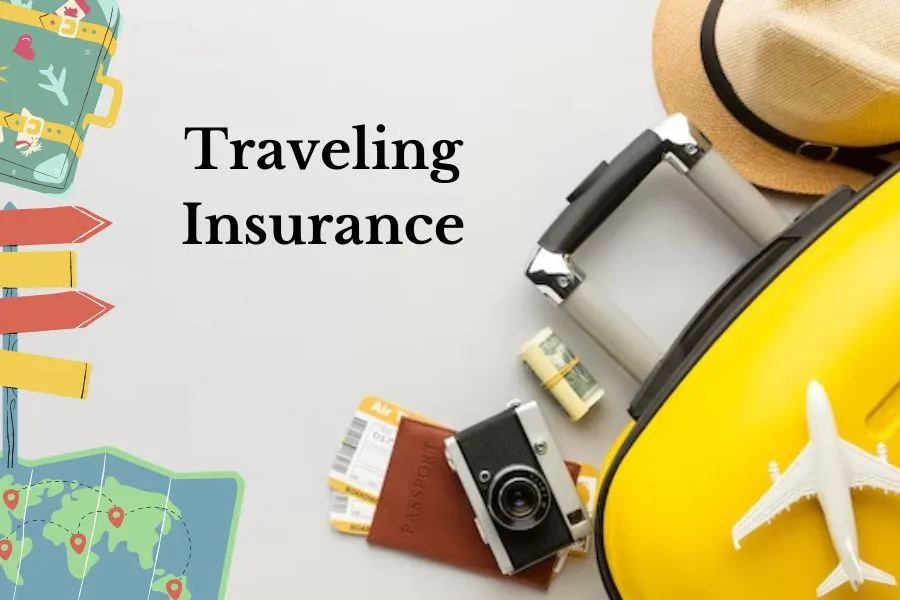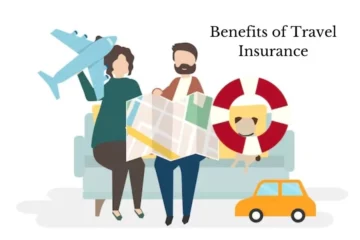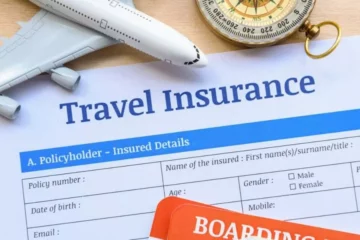Why Traveling Insurance is a Must-Have for Your Next Adventure

Are you planning your next adventure abroad? Whether you’re going on a backpacking trip, a luxury cruise, or a family vacation, one thing you should never forget is travel insurance. It may not be the most exciting aspect of your trip, but it’s an essential investment that can protect you from unexpected events that can ruin your travel experience. From flight cancellations to lost luggage, accidents, and medical emergencies, travel insurance can give you peace of mind and ensure that you’re covered in case of any mishap. In this article, we’ll explore the top reasons why travel insurance is a must-have for every traveler and how it can save you money, time, and stress. So, before you pack your bags and hit the road, let’s dive into the world of travel insurance and discover why it’s an essential part of your travel planning.
Risks of traveling without insurance
Traveling is one of the most exciting things you can do in life. However, there are risks involved when you travel without insurance. For instance, you might lose your luggage, or you might need to cancel your trip due to unforeseen circumstances. Travel insurance covers these risks, and it provides protection and assistance when you need it the most.
One of the most significant risks of traveling without insurance is the possibility of medical emergencies. Imagine falling sick or getting injured in a foreign country where you don’t speak the language or understand the healthcare system. You might end up paying exorbitant medical bills, and you might not receive the right treatment. With travel insurance, you can access emergency medical treatment and evacuation services, which can be life-saving.
Another risk of traveling without insurance is the possibility of trip cancellation or interruption. You might need to cancel your trip due to illness, injury, or unexpected events such as natural disasters, political unrest, or terrorism. Without travel insurance, you might lose your non-refundable deposits and payments for flights, hotels, and other bookings. Travel insurance can reimburse you for these expenses and provide you with additional benefits such as trip interruption coverage.
Finally, traveling without insurance can expose you to financial risks. In case of theft, loss, or damage to your personal belongings, you might have to pay out of pocket for replacements. Similarly, if you accidentally cause damage to someone else’s property or injure someone, you might be liable for compensation. Travel insurance can cover these expenses and protect you from financial ruin.
Benefits of travel insurance
Now that we’ve seen the risks of traveling without insurance let’s explore the benefits of having travel insurance. First and foremost, travel insurance provides peace of mind. When you have insurance, you know that you’re protected in case of any mishap, and you can enjoy your trip without worrying about what might happen.
Travel insurance also provides you with assistance and support when you need it. If you have an emergency, you can contact your insurer’s 24/7 assistance hotline, and they can provide you with guidance, advice, and arrangements for medical treatment, evacuation, or repatriation. This can be invaluable, especially when you’re in a foreign country and don’t know where to turn for help.
Travel insurance can also save you money in the long run. For example, if you need to cancel your trip due to illness or other unforeseen events, you might lose a significant amount of money in non-refundable deposits and bookings. With travel insurance, you can get reimbursed for these expenses and avoid financial losses. Similarly, if you have to cut your trip short due to an emergency, travel insurance can reimburse you for the unused portion of your trip, including airfare, hotel, and other expenses.
Finally, travel insurance can provide you with additional benefits such as baggage loss or delay coverage, travel delay coverage, and rental car damage coverage. These benefits can be very useful, especially when you’re traveling with valuable items or need to rent a car.
Types of travel insurance coverage
There are several types of travel insurance coverage available, and it’s essential to understand what each one covers. The most common types of coverage include:
Trip cancellation and interruption coverage
This coverage reimburses you for non-refundable deposits and payments if you need to cancel your trip due to illness, injury, or other unforeseen events. It also covers you if you need to interrupt your trip due to an emergency.
Emergency medical and evacuation coverage
This coverage provides you with medical treatment and evacuation services if you fall sick or get injured during your trip. It can cover expenses such as hospitalization, surgery, and transportation to a medical facility.
Baggage loss or delay coverage
This coverage reimburses you for the loss, theft, or damage of your luggage or personal belongings during your trip. It can also provide you with compensation for expenses incurred due to baggage delay.
Travel delay coverage
This coverage provides you with compensation for expenses incurred due to travel delays such as missed connections or flight cancellations. It can cover expenses such as meals, accommodations, and transportation.
Rental car damage coverage
This coverage provides you with protection for damage to a rental car during your trip. It can save you from having to pay for expensive repairs or replacement costs.
Factors to consider when choosing travel insurance
When choosing travel insurance, it’s essential to consider several factors. These factors can help you determine the right type of coverage and the right insurer for your needs. Here are some of the factors to consider:
Type of trip
The type of trip you’re taking can influence the type of coverage you need. For example, if you’re going on a cruise, you might need more comprehensive coverage than if you’re taking a short domestic flight.
Destination
The destination you’re traveling to can also affect the type of coverage you need. For example, if you’re traveling to a remote location with limited medical facilities, you might need more extensive medical and evacuation coverage.
Length of trip
The length of your trip can also influence the type of coverage you need. For example, if you’re taking a short trip, you might not need trip cancellation or interruption coverage.
Age and health
Your age and health can also affect the type of coverage you need. For example, if you have pre-existing medical conditions, you might need more comprehensive medical coverage.
Cost
Finally, the cost of travel insurance can vary depending on the type of coverage and the insurer. It’s essential to compare prices and benefits from different insurers to find the best value for your money.
How to purchase travel insurance
Purchasing travel insurance is easy and convenient. You can buy it online through the insurer’s website or through a travel agency. It’s essential to read the terms and conditions of the policy carefully and understand what’s covered and what’s not. You should also compare prices and benefits from different insurers to find the best value for your money.
Common misconceptions about travel insurance
There are several misconceptions about travel insurance that can prevent people from purchasing it. Here are some of the most common misconceptions:
It’s too expensive
While travel insurance can add to the cost of your trip, it’s usually not that expensive compared to the potential financial losses you might incur without it.
It’s not necessary
Many people believe that travel insurance is not necessary, especially if they’re taking a short trip or traveling domestically. However, unexpected events can happen at any time, and travel insurance can provide you with peace of mind and protection.
It’s complicated
While travel insurance policies can be complex, it’s essential to read the terms and conditions carefully and understand what’s covered and what’s not. You can also contact the insurer’s customer service for assistance and guidance.
Tips for using travel insurance effectively
To get the most out of your travel insurance, here are some tips to keep in mind:
Purchase insurance early
It’s best to purchase travel insurance as soon as you book your trip to ensure that you’re covered in case of any unforeseen events.
Keep your policy with you
Make sure to keep a copy of your travel insurance policy with you during your trip, and keep your insurer’s contact information handy.
File claims promptly
If you need to file a claim, do it as soon as possible to ensure that you receive prompt reimbursement.
Understand the claims process
It’s essential to understand the claims process and what documents you need to provide to receive reimbursement.
Travel insurance success stories
Finally, here are some examples of travel insurance success stories:
A traveler fell ill in a foreign country and needed emergency medical treatment. Her travel insurance covered the cost of hospitalization and transportation to a medical facility.
A traveler lost his luggage during his trip, and his travel insurance reimbursed him for the cost of replacing his personal belongings.
A traveler had to cancel her trip due to a family emergency, and her travel insurance reimbursed her for the non-refundable deposits and payments.
Conclusion
Travel insurance is an essential investment for every traveler, regardless of the type of trip or destination. It can protect you from unexpected events and provide you with peace of mind and assistance when you need it the most. When choosing travel insurance, it’s essential to consider the type of coverage you need, the destination, and your budget. By following these tips and understanding the benefits of travel insurance, you can ensure that your next adventure is a safe and enjoyable one.








